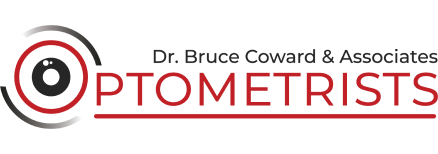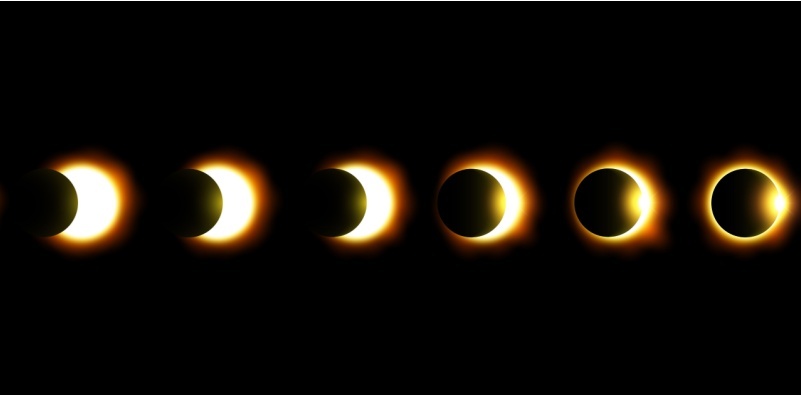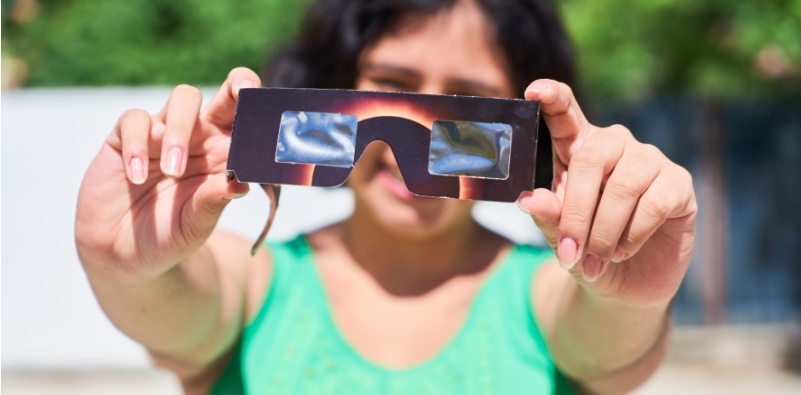What you need to know about the upcoming solar eclipse in Canada

On April 8th, a total solar eclipse will grace the skies above North America, Mexico, USA, and Canada – a celestial spectacle. While such events are rare – with the last solar eclipse in Canada occurring in 1979 and the next in 2106 – the impending eclipse presents an extraordinary opportunity for skygazers.
However, amidst the excitement, it’s crucial to prioritize eye safety. In this blog, we aim to shed light on the upcoming total solar eclipse, including the associated risks and essential precautions you should take to view it safely.
What is a solar eclipse?
Firstly, let’s understand what a solar eclipse is. Essentially, it occurs when the moon aligns between the Earth and the sun, casting a shadow over a portion of the Earth’s surface, resulting in the temporary dimming or obscuration of the sun’s light.
In Ontario, we can expect the next solar eclipse in Canada to start at 2 pm and the total darkness to occur at around 3:20 pm, lasting a few minutes.
Protecting your eyes from eclipse danger
While witnessing this astronomical phenomenon is awe-inspiring, it’s imperative to recognize the potential dangers to unprotected eyes. To illustrate, directly staring at the sun during an eclipse, even for a short duration, can lead to severe eye damage, commonly referred to as “eclipse blindness” or solar retinopathy. This occurs due to the intense solar radiation damaging the cells in the retina that transmit what you see to your brain.
Although this damage can be temporary or permanent, it’s important to know it can occur with no pain and can take a few hours or days after the eclipse to show. So don’t underestimate the damage the sun’s rays can cause during this time.
Symptoms of eye damage from the eclipse
Symptoms of eye damage may include:
- blurred vision
- light sensitivity
- blind spots in one or both eyes
- eye pain
- distortion
- changes in the way you see color
- permanent vision impairment
But remember, this damage can manifest hours or days post-exposure, often without immediate pain or discomfort.
The best solar eclipse safety tips
Given that the next solar eclipse in Canada won’t be for another few hundred years, you probably don’t want to miss the opportunity to view this event. To ensure a safe viewing experience, consider the following tips.
- Wear specialist safety eclipse glasses. Invest in ISO-certified ISO 12312-2 solar eclipse glasses to safeguard your eyes from harmful solar radiation. Regular sunglasses or homemade filters are insufficient protection and may exacerbate the risk of eye damage. You can buy eclipse glasses from online certified retailers.
- When you buy your authentic eclipse glasses, check for any scratches or peeling to the lenses. Any damage caused to them could mean they won’t provide adequate protection. You also shouldn’t be able to see any ordinary lights through them.
- For safety reasons, we recommend keeping the eclipse glasses on at all times, even during totality.
- Avoid unfiltered cameras. Never attempt to capture images of the sun during the eclipse using unfiltered cameras or smartphones, telescopes, or binoculars. The concentrated sunlight can damage both the device’s sensor and your eyes.
- Don’t drive during the eclipse. As many pedestrians will be sky-gazing, they will not be paying attention to the road or traffic. To avoid any accidents and injuries, stay off the roads.
By adhering to these precautions, you can enjoy the total solar eclipse without compromising your vision. Remember, your eyes are irreplaceable, and protecting them should be your top priority during this extraordinary event.
Get in touch
For further guidance on eye safety or to acquire legitimate solar eclipse glasses, don’t hesitate to reach out to us or visit us at our optometrist in Ontario. Our team is dedicated to ensuring your vision remains clear and healthy, even amidst viewing the wonders of the cosmos.




